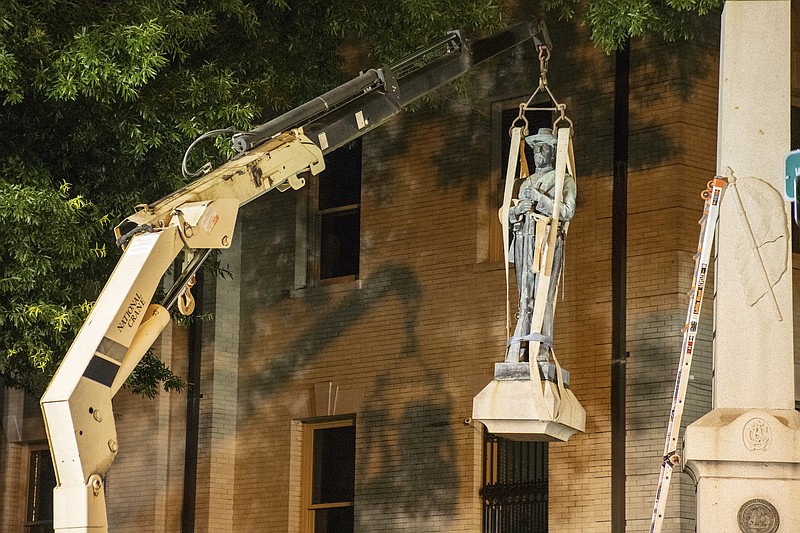From the beginning a civil war was inevitable.
The first seven decades of our history are a story of compromise, accommodation and temporizing, all in the attempt to avert armed conflict as long as possible.
The Three-Fifths Compromise, the Missouri Compromise, the Compromise of 1850 and the Kansas-Nebraska Act of 1854 eased tensions temporarily. But the conflict between an industrializing, modernizing, free-labor North and an agricultural South that depended on slaves and white supremacy was irresolvable, except, eventually, by war.
We usually say the war ended four years later on Apr. 9, 1865, when Robert E. Lee surrendered the Army of Northern Virginia to Ulysses S. Grant at Appomattox, Virginia.
But dissatisfied interests in both the North and South began almost immediately to work to reestablish the prewar status quo.
In fact, the war will never be entirely over until two things happen. The first is the achievement of genuine, practical equality for African Americans. Slavery and segregation have given way to their modern equivalents, de facto segregation in our schools, churches and neighborhoods and economic conditions that guarantee that Black family wealth is a fraction of white wealth.
Second, we have to abandon the cult of the Civil War. This means dismantling the monuments that glorify the so-called "Lost Cause," the revisionist idea that the South was fighting for states' rights or the preservation of a benign, honorable way of life. It means letting go of our fetish for the Confederate flag, and it means renaming the 10 military installations that still commemorate Confederate officers.
This is not erasing history; it's embracing it honestly. The courage and gallantry these honored confederates might have displayed cannot redeem the fact that they were fighting to preserve white supremacy.
And they weren't terribly good at it. Robert E. Lee was a competent tactician, but he was no strategist. He was a slaveholder who sometimes had slaves flogged; sometimes he flogged them himself. And like much of the Southern aristocracy, after the fighting stopped, Lee put his efforts into maintaining white supremacy.
In 1866, Grant said about Lee: "Lee is behaving badly. He is conducting himself very differently from what I had reason, from what he said at the time of the surrender, to suppose he would. No man at the South is capable of exercising a tenth part of the influence for good that he is, but instead of using it, he is setting an example of forced acquiescence so grudging and pernicious in its effect as to be hardly realized."
It would be better to understand Lee than to maintain monuments to his glory.
Lest you think that I'm just another liberal Yankee with no appreciation for the Old South, I'd be happy to put my Confederate bona fides up against yours.
I've lived in Texas all my life. Some of my ancestors fought for the Confederacy. In fact, one of them, Francis Hays, a Texas frontier lawyer in my mother's direct line of descent, on March 6, 1860, went to a "negro auction" and purchased "one little boy about 10 years old for $1,150.00." He called it "a good bargain."
Am I embarrassed by this slaveholding heritage? Not at all. After a few generations, family trees ramify so extensively that everyone's is filled with sinners and saints, priests and prostitutes, slaveholders and abolitionists. So is yours. Southern heritage is nothing to be ashamed of, but it's nothing to be proud of, either.
The Civil War wasn't a Lost Cause, it was a Bad Cause. We'll never bring the war to an end until we stop glorifying the men who fought to preserve white supremacy, no matter how gallantly.
Tribune Content Agency
